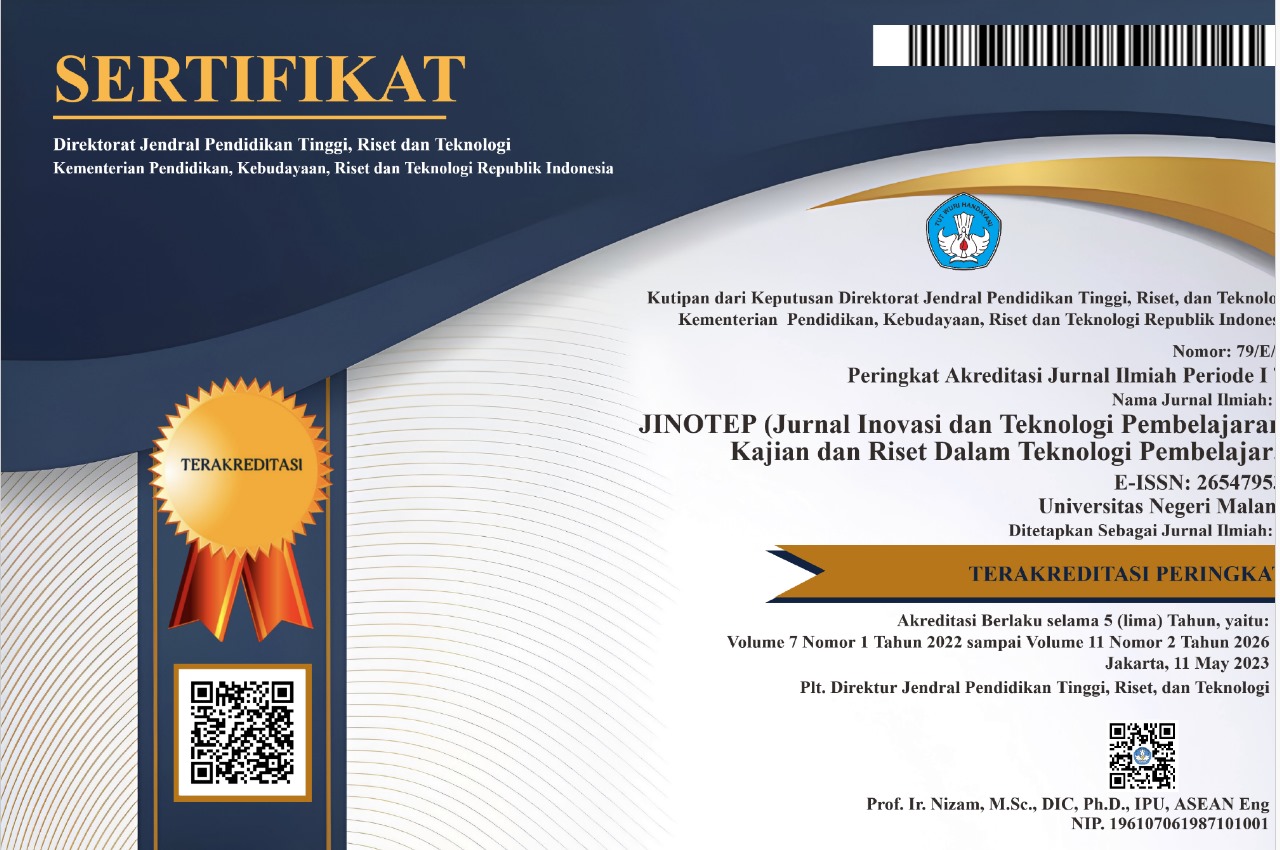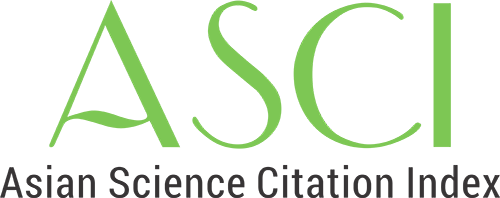Integrated Mobile Learning System (IMOLES) Sebagai Upaya Mewujudkan Masyarakat Pebelajar Unggul Era Digital
Abstract
Abstrak: Perkembangan teknologi informasi dan komunikasi (TIK) membawa perubahan yang signifikan dalam berbagai bidang kehidupan manusia termasuk bidang pendidikan. Pendidikan sebagai pilar utama bangsa dalam rangka membangun kualitas sumber daya manusia Indonesia yang berkarakter unggul. Pendidikan harus mampu mengadaptasi perkembangan ilmu pengetahuan dan teknologi yang berkembang pesat. Integrasi antara teknologi internet dengan telfon pintar melahirkan kesempatan masyarakat untuk belajar sepanjang hayat. Mobile learning merupakan salah satu tren dalam bidang teknologi pendidikan dewasa kini diharapkan mampu memfasilitasi kebutuhan belajar semua kalangan. Di samping itu mobile learning dapat menjadi solusi permasalahan pemerataan dan keterbatasan akses pendidikan. Namun demikian diperlukan kebijakan pemerintah yang mendorong terbangunnya mobile learning system. Kebijakan yang dimaksud idealnya berupa tatanan sistem yang dikelola secara profesional. Dengan demikian mobile learning yang dirancang, dikembangan, dimanfaatkan, dikelola dan dievaluasi dengan baik diharapkan dapat berperan dalam membangun budaya belajar masyarakat dan berkontribusi meningkatan indeks pembangunan manusia Indonesia yang unggul dan berdaya saing global.
Abstract: The development of information and communication technology (ICT) brings significant changes in various fields of human life including the field of education. Education as the main pillar of the nation in order to build the quality of Indonesian human resources with superior character. Education must be able to adapt to the rapid development of science and technology. The integration of internet technology with smartphones gave birth to people's opportunities for lifelong learning. Mobile learning is one of the trends in the field of adult education technology which is now expected to be able to facilitate the learning needs of all groups. Besides that mobile learning can be a solution to the problem of equity and limited access to education. However, government policies are needed to encourage the development of a mobile learning system. The policy in question is ideally in the form of a system that is managed professionally. Thus mobile learning that is well designed, developed, utilized, managed and evaluated is expected to play a role in building a culture of community learning and contributing to the improvement of Indonesia's superior and globally competitive human development index.
Keywords
Full Text:
PDFReferences
Alfindasari, D., & Surahman, E. (2014). Sumber daya manusia dan pendidikan di era global: sebuah tinjauan terhadap penelitian teknologi pendidikan di LPTK. In Proceeding Seminar Nasional Teknologi Pembelajaran. Yogyakarta: UNY.
Ally, M. (Ed.). (2009). Mobile learning: Transforming the delivery of education and training. Athabasca University Press.
Briz-Ponce, L., Pereira, A., Carvalho, L., Juanes-Méndez, J. A., & García-Peñalvo, F. J. (2017). Learning with mobile technologies–Students’ behavior. Computers in Human Behavior, 72, 612-620.
gs.statcounter.com. (2015). Top 8 Mobile & Tablet Operation System In Indonesia Form Jan to Aug 2015.
Koole, M. L. (2009). A model for framing mobile learning. Mobile learning: Transforming the delivery of education and training, 1(2), 25-47.
Pemerintah Republik Indonesia. (1945). Undang-Undang Dasar Tahun 1945. Jakarta.
Pemerintah Republik Indonesia. (2003). Undang-Undang Republik Indonesia No 20 Tahun 2003 tentang Sistem Pendidikan Nasional. Jakarta.
Rose, C., & Nicholl, M. J. (2002). Accelerated learning for the 21st century: cara belajar cepat abad XXI. Bandung: Nuansa.
Surahman, E., & Surjono, H. D. (2017). Pengembangan adaptive mobile learning pada mata pelajaran biologi SMA sebagai upaya mendukung proses blended learning. Jurnal Inovasi Teknologi Pendidikan, 4(1), 26-37.
Surahman, E., & Alfindasari, D. (2017, September). Developing adaptive mobile learning with the principle of coherence Mayer on biology subjects of high school to support the open and distance education. In 3rd International Conference on Education and Training (ICET 2017) (pp. 184-190). Atlantis Press.
Surahman, E., Wedi, A., Soepriyanto, Y., & Setyosari, P. (2018, December). Design of Peer Collaborative Authentic Assessment Model Based on Group Project Based Learning to Train Higher Order Thinking Skills of Students. In International Conference on Education and Technology (ICET 2018) (pp. 75-78). Atlantis Press.
Susanto. E., (2009). 60 games untuk mengajar. Yogyakarta: Lukita.
Sutopo, A. H. (2012). Teknologi informasi dan komunikasi dalam pendidikan. Yogyakarta: Graha Ilmu, 131-134.
Traxler, Jhon. (2009). Current state of mobile learning. Canada. AU Press.metacognitive learning approach based on lesson study. International Journal of Education and Research, 3(2), 169-180.
Ziniel, C. E., & Ghalib, A. K. (2017). Informed Teaching—A Mixed-Methods Approach to Assessing Perception and Practice Within a Higher Education Setting. SAGE Publications Ltd.
DOI: http://dx.doi.org/10.17977/um031v5i22019p050
Refbacks
- There are currently no refbacks.
Copyright (c) 2019 Ence Surahman

This work is licensed under a Creative Commons Attribution-ShareAlike 4.0 International License.
======================================================================
Jurnal Inovasi dan Teknologi Pembelajaran published by Universitas Negeri Malang in collaboration with the Asosiasi Program Studi Teknologi Pendidikan Indonesia (APS TPI) and Ikatan Profesi Teknologi Pendidikan Indonesia (IPTPI) with a MoU.
Publisher Address:
Educational Technology Laboratorium, Building D5, 1st Floor
Faculty of Education, Universitas Negeri Malang
Semarang St. No. 5, Malang City, East Java Province, Postal Code 65145
Email: jinotep.fip@um.ac.id
======================================================================

JINOTEP is licensed under a Creative Commons Attribution-ShareAlike 4.0 International License.
JINOTEP Statistics (Since July 13th, 2020)


.png)




.png)
1.png)
1.png)
4.png)
2.png)
1.png)
1.png)
.png)


_3.png)





1.png)
.png)